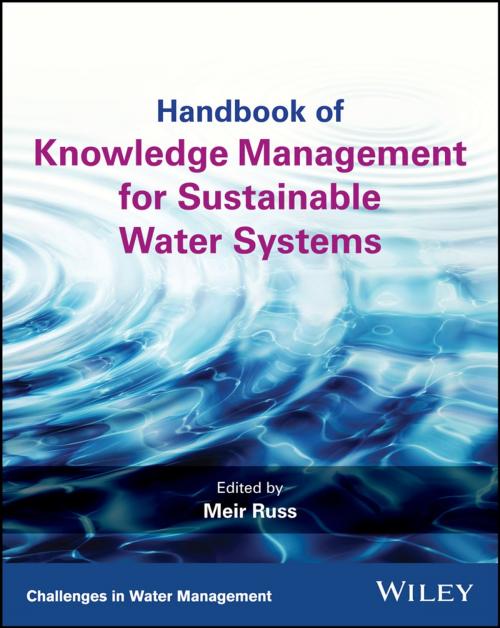Handbook of Knowledge Management for Sustainable Water Systems
Nonfiction, Science & Nature, Technology, Engineering, Environmental| Author: | ISBN: | 9781119271673 | |
| Publisher: | Wiley | Publication: | January 18, 2018 |
| Imprint: | Wiley-Blackwell | Language: | English |
| Author: | |
| ISBN: | 9781119271673 |
| Publisher: | Wiley |
| Publication: | January 18, 2018 |
| Imprint: | Wiley-Blackwell |
| Language: | English |
A comprehensive synthesis of the best practices for management in the vital and rapidly growing field of sustainable water systems
Handbook of Knowledge Management for Sustainable Water Systems offers an authoritative resource that goes beyond the current literature to provide an interdisciplinary approach to the topic. The text explores the concept of knowledge management as a key asset and a crucial component of organizational strategy as applied to the sustainability of water systems.
Using the knowledge management framework, the authors discuss socio-hydrology sustainable water systems that reflect the present political, economic and technological reality. The book draws on contributors from a number of disciplines including: economic development, financial, systems-networks, IT/IS data/analytics, behavioral, social, water systems, governance systems and related ecosystems. This vital resource:
- Contains a multifaceted approach that draws on a number of disciplines and contains contributions from experts in their various fields
- Offers a coherent approach that discusses the dynamic concept of sustainability drawing on data from people, systems and processes of diverse water systems
- Includes a comprehensive review of the topic and offers a platform for dialog between theory and empirical analysis
- Explores opportunities for multi-constituent synthesis
This book is written for regulators, water utility practitioners, researchers and students interested in the fledgling field of knowledge management and sustainable water systems and those who want to improve the effective and efficient management of a complex water system.
A comprehensive synthesis of the best practices for management in the vital and rapidly growing field of sustainable water systems
Handbook of Knowledge Management for Sustainable Water Systems offers an authoritative resource that goes beyond the current literature to provide an interdisciplinary approach to the topic. The text explores the concept of knowledge management as a key asset and a crucial component of organizational strategy as applied to the sustainability of water systems.
Using the knowledge management framework, the authors discuss socio-hydrology sustainable water systems that reflect the present political, economic and technological reality. The book draws on contributors from a number of disciplines including: economic development, financial, systems-networks, IT/IS data/analytics, behavioral, social, water systems, governance systems and related ecosystems. This vital resource:
- Contains a multifaceted approach that draws on a number of disciplines and contains contributions from experts in their various fields
- Offers a coherent approach that discusses the dynamic concept of sustainability drawing on data from people, systems and processes of diverse water systems
- Includes a comprehensive review of the topic and offers a platform for dialog between theory and empirical analysis
- Explores opportunities for multi-constituent synthesis
This book is written for regulators, water utility practitioners, researchers and students interested in the fledgling field of knowledge management and sustainable water systems and those who want to improve the effective and efficient management of a complex water system.















